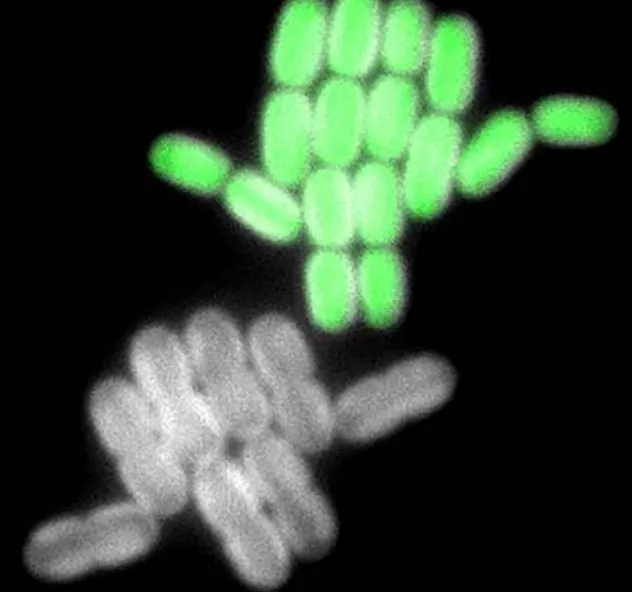Biofuel Obtains An Additional "Never Ever Surrender!" Moment
- The globe of biofuel is having a down minute recently, as is virtually every other part of the energy world. Nonetheless, signs of a green rejuvenation are ever flowering. The latest advancement includes cyanobacteria, also known as turquoise algae, a microorganism that has thrilled, bedazzled, and also aggravated biofuel followers for a generation.

What's All This Concerning Biofuel From Cyanobacteria?
In terms of living microorganisms, cyanobacteria is fairly the odd bird. Right here's an explainer from UC Berkeley that barely scratches the surface:
“Cyanobacteria are aquatic and photosynthetic, that is, they live in the water, and can manufacture their own food…They have the distinction of being the oldest known fossils, more than 3.5 billion years old, in fact! It may surprise you then to know that the cyanobacteria are still around; they are one of the largest and most important groups of bacteria on earth.”
Cyanobacteria are pulling their own weight in the clean tech field, also. Applications are arising in solar energy as well as methane conversion among other sustainability talents.
More to the point, cyanobacteria have a plant-like capacity to transform water and also co2 right into oil with a help from sunshine, that makes sense considering that cyanobacteria down payments from back in the Proterozoic duration provide fossil oil today.
Obviously, there's a catch. Nature took her time about converting cyanobacteria to usable fuel. The Proterozoic period began 2.5 billion years earlier, for those of you maintaining rating in the house. We do not have fairly as much time, and afterwards certainly you have to consider the power input called for to press biofuel out of tiny microorganisms, together with other matters that stand in the means of producing an economically affordable fuel.
Biofuel Innovation For Cyanobacteria
Regardless of the obstacles, biofuel followers are delighted regarding cyanobacteria, compared to other biomass at hand, due to the fact that they expand much faster than routine plants and also they take care of carbon twice as successfully. If only someone could identify specifically what makes them tick, that would help speed the way to an efficient biofuel system.
One vital area of study includes the carboxysome protein complex, which is the website where cyanobacteria repair carbon.
That brings us, ultimately, to the most up to date growth. A group of scientists with the Sustainable and also Lasting Power Institute at the College of Colorado Boulder (in partnership with the National Renewable Energy Laboratory) determined just how to designer cells with a single carboxysome, as well as track it for more than 60 hrs as it passed from one generation to the following.
Consequently, they had the ability to identify which carboxysomes were acting a lot more effectively than others. Only 5% gotten approved for the "ultraproductive" category, which suggests there is lots of room for renovation.
The next actions will certainly include finding out how to obtain the other 95% to up their carbon-fixing game. That will not always indicate that we'll all be driving on cyano-mobiles one day, yet it might result in techniques for changing various other biofuel plants-- switchgrass for instance-- to boost return.
Biofuel After COVID-19
Speaking of cyano-mobiles, all the way back in 2009 ExxonMobil introduced a biofuel collaboration with the company Synthetic Genomics, which they prolonged in 2013 with a concentrate on foundational research study. The research involved cyanobacteria, which practically is not algae in spite of the familiar tag of blue-green algae.
The two firms declared the sustainable fuel partnership once more in 2017 yet they're mosting likely to have to pick up the rate a bit if they intend to take part in the environment-friendly healing. After all, there will certainly be a lot of wiggle-room for fluid gas over the next 10 years or two.
On the other hand, there are currently some signs that electrical automobiles could have the edge over their gas-powered cousins when automobile sales pick up on the heels of the COVID-19 situation.
In an interesting twist on the financial impact of COVID-19, the heated delivery field can accelerate the EV pattern as effective stakeholders (taking a look at you, Amazon.com) show up the heat on fleet electrification.
Also read
- CSIRO Unveils Beam-Down Solar Reactor, Pushing Green Hydrogen Frontiers
- Neom’s 2.2-GW Green Hydrogen Plant Nears Finish Amid Buyer Shortfall
- Energy Estate Enters US with California Hydrogen Hub Purchase
- Neom’s Giant Hydrogen Project Stalls Amid Buyer Shortage, Faces Slowdown
- EIB Backs Barbados Solar-Hydrogen Storage with Grants
